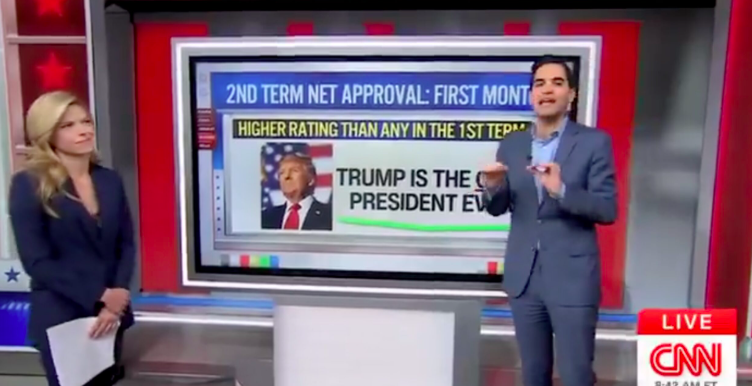Vice President Kamala Harris is backing a sweeping amnesty proposal that could grant fast-tracked American citizenship to an estimated 11 to 22 million illegal aliens currently residing in the United States. This push for immigration reform was highlighted in a recent interview on Fox News Channel’s Special Report, where Harris touted the U.S. Citizenship Act of 2021 as a priority for the Biden administration.
The U.S. Citizenship Act, introduced by President Joe Biden just hours after taking office in January 2021, is designed to overhaul the U.S. immigration system by providing a pathway to citizenship for the millions of individuals living in the country without legal status. Harris made it clear during her interview that the administration views immigration reform as critical to the nation’s future.
“The first bill, practically within hours of taking the oath, was a bill to fix our immigration system,” Harris said, referring to the U.S. Citizenship Act of 2021. “We recognized from day one … it is a priority for us as a nation and for the American people.”
At the heart of the U.S. Citizenship Act is a plan to provide most illegal aliens in the U.S. with “Lawful Prospective Immigrant” status. This new status would allow them to work legally, obtain Social Security cards, and leave and re-enter the country without fear of deportation. This would represent a significant shift in U.S. immigration policy and would offer millions of undocumented individuals the opportunity to integrate more fully into American society.
After spending five years as Lawful Prospective Immigrants, these individuals would be eligible to apply for green cards, a key step toward permanent residency. Once they have green cards, the waiting period for full citizenship would be reduced from the usual five years to just three. This expedited timeline would allow many illegal aliens to become naturalized U.S. citizens—and, therefore, eligible voters—within less than a decade.
For specific groups, including Deferred Action for Childhood Arrivals (DACA) recipients, farmworkers, and those under Temporary Protected Status (TPS), the path to citizenship is even quicker. Under the plan, these groups would be granted green cards immediately, allowing them to apply for naturalization after only three years. This special treatment underscores the administration’s emphasis on protecting migrants who have lived in the U.S. for extended periods or contribute significantly to the economy.
If passed, this mass amnesty plan could fundamentally reshape the American electorate by enfranchising millions of new voters. While the plan only grants citizenship to those who meet all other eligibility requirements, it would likely increase the number of individuals eligible to vote in future elections significantly.
Critics of the plan argue that it could overwhelm the system and incentivize more illegal immigration. They also contend that offering such a quick path to citizenship, especially for individuals who entered the country illegally, undermines the rule of law and rewards illegal behavior. Moreover, the provision allowing deported individuals who lived in the U.S. for at least three years before their removal to re-enter under the amnesty plan has sparked fierce opposition from conservative lawmakers and immigration advocates who support stricter border enforcement.
Another notable element of the U.S. Citizenship Act is the proposed change in language throughout federal immigration law. The act would replace the term “alien” with “noncitizen,” a move Harris and other administration officials argue is aimed at humanizing undocumented individuals and aligning federal law with the country’s values. However, this change has stirred controversy, with opponents arguing that it amounts to political correctness at the expense of clear legal terminology.
The mass amnesty proposal has reignited the ongoing debate over U.S. immigration policy. Proponents of the U.S. Citizenship Act argue that it’s time for comprehensive immigration reform that acknowledges the contributions of undocumented immigrants and provides them with a fair path to legal status. Supporters also point to the economic benefits of bringing millions of workers out of the shadows, which could boost tax revenue and fill essential jobs in agriculture and other sectors.
Opponents, however, see the plan as overly lenient and potentially dangerous. Critics like former President Donald Trump and conservative lawmakers have voiced concerns that the amnesty plan would weaken border security and encourage more illegal immigration, as well as strain public resources and services.
As Vice President Harris continues to champion the U.S. Citizenship Act, it remains to be seen whether the Biden administration can gather the political support needed to pass the legislation in a sharply divided Congress. Immigration reform has long been a polarizing issue in the U.S., and the scale of the amnesty proposed by this act is likely to face intense scrutiny from both sides of the aisle.
Nevertheless, Harris’s backing of the plan signals the administration’s determination to make immigration reform a key part of its legacy. As the 2024 election approaches, the debate over how best to address the millions of undocumented immigrants living in the U.S. will only intensify, with both parties using the issue to energize their voter bases.
The U.S. Citizenship Act of 2021 represents a bold attempt to address a decades-old problem in the American immigration system, but its future remains uncertain as political battles over its provisions continue to unfold.



I do not think illegals who came here as adults should ever be granted citizenship. They loose any right to citizenship by coming here illegally. A few may be given legal status but never citizenship. Most need to be deported. Never supported DACA either – age cut off too high. Only allow kids who came in as pre-schoolers and don’t speak their parents native language.